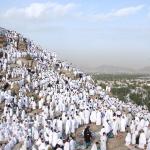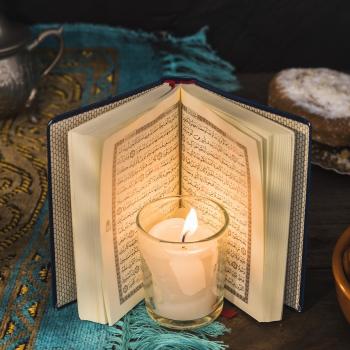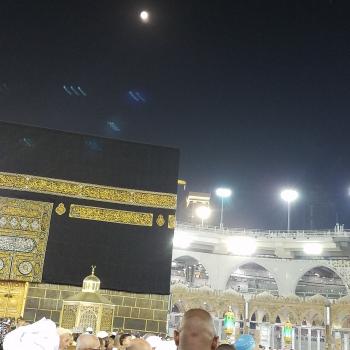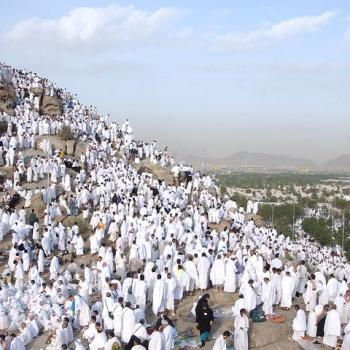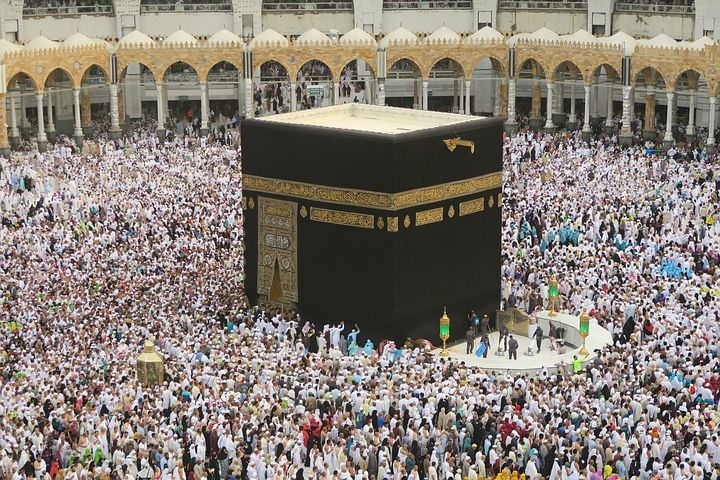 Eid (Al Adha) Mubarak. As Muslims around the world celebrate Eid Al Adha, let’s pause for a minute and ponder the lessons we can draw from the Hajj rituals. On my own Hajj experience two years ago, my observations were not much different than those of Malcolm X, as noted here.
Eid (Al Adha) Mubarak. As Muslims around the world celebrate Eid Al Adha, let’s pause for a minute and ponder the lessons we can draw from the Hajj rituals. On my own Hajj experience two years ago, my observations were not much different than those of Malcolm X, as noted here.
Two years ago, throughout my Hajj pilgrimage, we had meetings led by our Imam practically every day to go over the religious lessons, the rituals and what’s to come the next day. On the last session of the trip, I asked every one to reflect on what we had just experienced. What did it mean to us? What are the take-home lessons? How did it change us, if at all? I also asked a specific question at the end: what one thing we would do differently when we got back home as a result of our pilgrimage, which we unanimously felt was the most incredible experience of our lives.
Like I mentioned on prior posts, Arafah means to gain a deep understanding (Ma`rifah)- cognition of the beginning (of creation), God’s mercy, and the end of all creation; cognition of Prophet Muhammad and the meaning of his message. Muzdalifah’s (the next stop after Arafat) other name is Mashar al Haram. Mashar is derived from Shaoor, meaning consciousness or awareness (of God and His immense Mercy). This was followed by stoning the Devil (Ramee) in Mina, and sacrificing an animal to commemorate Abraham’s (intended) sacrifice of Ishmael at the command of God. (Biblical scholars maintain it was his second son, Isaac).
Thus the rituals at Arafat, Mashar al Haram and Mina draw our attention to be cognizant of God, to be aware of His immense bounties and to submit to His will like Abraham did. As we all know, Abraham did not have his first son until old age and he loved him dearly. As he drew deeper in love for his son, God reminded him that the love for God needs to be put above and beyond everything else. So God tested Abraham with what he loved the most- his own son.
Thinking beyond the ritualistic sacrifice of the lamb, we must ask what/who is our Ishmael today that we put above God? To be clear, I am not asking us to think about sacrificing our children. That simply would be crazy. But we have to ask what is/are the barrier/s between us and remembering and submitting to God. Is it our job, our wealth or our ego? Slaughtering the sacrificial animal would not mean much if we don’t think beyond the most superficial meaning. And drawing the experience of Arafat, are we cognizant, and do we have the shaoor (awareness) of what is coming between us and the love for, and service to, God? Have we put God on the back burner because “we are so busy and have important things to do”, and that quite simply, our lives have become too busy to find lace for God.
And that love of god has to translate into action. Otherwise it would be just lip service. I totally understand it is easier said than done. But we have to contemplate nonetheless.
Hajj is about simplicity (wearing simple unstitched pieces of cloth-Ihram), unity, recognition of, and submission to, God, humility and sacrifice. We learn these lessons through rituals that reminds of the sacrifices and actions of the family of Abraham- his son Ishmael and his wife Hagar. By honoring their memories, we seek the pleasure of God and yearn to draw closer to Him.
From a communal perspective, we also saw first hand what it means to be with people from all walks of life, cultural background, socio-economic status, color of skin, language, national and ethnic background- all coming together to submit themselves humbly to God wearing just two pieces of unstitched cloth. We were equal in God’s sight and that’s all what mattered. It was a constant reminder that we are one big family regardless of our differences. Wearing white pieces of cloth (Ihram), while denoting simplicity, humility and unity, was like putting on the simple shroud that Muslims are covered with for burial- a not-so-subtle reminder of our eventual return to God and our responsibilities on this earth.
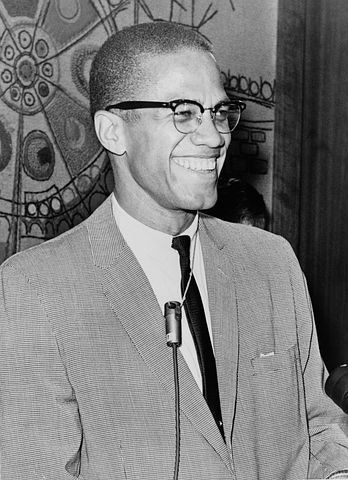 This letter from Malcolm X, a legendary civil rights leader, who changed his name to Malik El Shabaaz experienced the same and shared his feelings after his Hajj in a letter. The Hajj experience change his perspective on race and his views on Whites.
This letter from Malcolm X, a legendary civil rights leader, who changed his name to Malik El Shabaaz experienced the same and shared his feelings after his Hajj in a letter. The Hajj experience change his perspective on race and his views on Whites.
There were tens of thousands of pilgrims, from all over the world. They were of all colors, from blue-eyed blondes to black-skinned Africans. But we were all participating in the same ritual, displaying a spirit of unity and brotherhood that my experiences in America had led me to believe never could exist between the white and the non-white.
You may be shocked by these words coming from me. But on this pilgrimage, what I have seen, and experienced, has forced me to rearrange much of my thought patterns previously held, and to toss aside some of my previous conclusions. This was not too difficult for me. Despite my firm convictions, I have been always a man who tries to face facts, and to accept the reality of life as new experience and new knowledge unfolds it. I have always kept an open mind, which is necessary to the flexibility that must go hand in hand with every form of intelligent search for truth.
During the past eleven days here in the Muslim world, I have eaten from the same plate, drunk from the same glass and slept in the same bed (or on the same rug)-while praying to the same God with fellow Muslims, whose eyes were the bluest of the blue, whose hair was the blondest of blond, and whose skin was the whitest of white. And in the words and in the actions and in the deeds of the ‘white’ Muslims, I felt the same sincerity that I felt among the black African Muslims of Nigeria, Sudan and Ghana.
We are truly all the same-brothers.
All praise is due to Allah, the Lord of the worlds.
PS: This post is an updated version of a similar post on this topic from last year’s Hajj.

